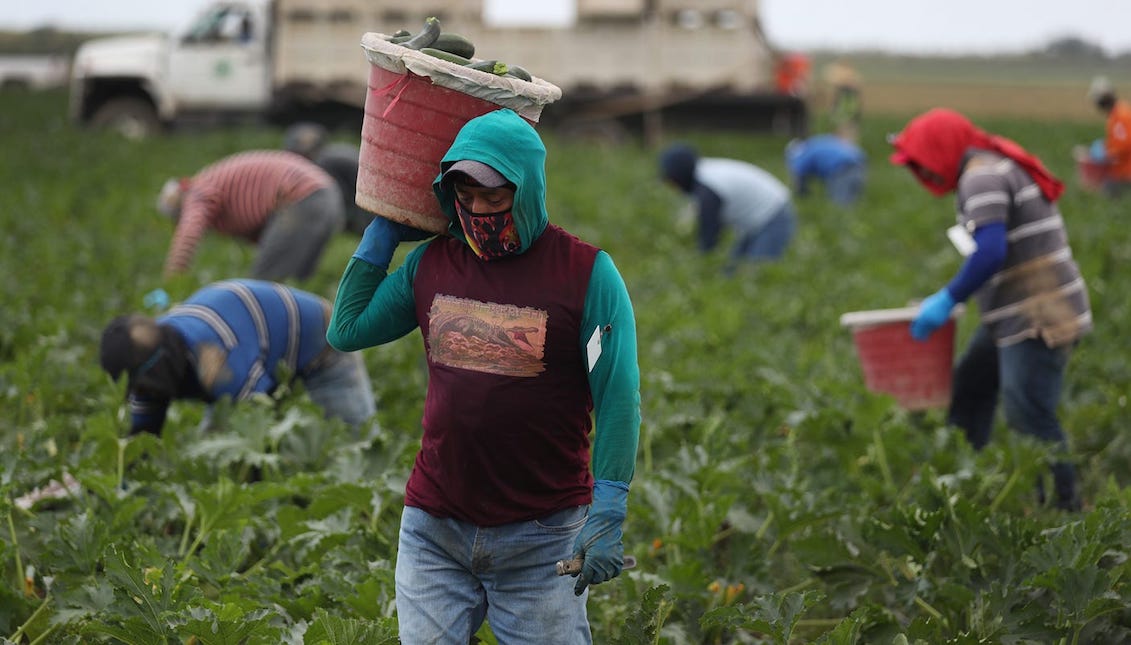
Coronavirus infections among farmers on the rise
The true essential workers in the country, responsible for feeding households during the pandemic, could be one of the worst sources of infection.
As the country tries to collect everything that happens minute by minute, the communities that are responsible for maintaining the country's economy, and the food on the table of American families, continue to be forgotten.
Immigrant rights groups have warned that farmworkers are "especially vulnerable" to the coronavirus because of the conditions in which they live and work.
According to the Washington Post, communities like the Immokalee farming community in Florida are rapidly becoming "an epicenter of coronavirus cases" in the state, with nearly 900 cases reported since April.
Their inability to take time off work also makes them carriers of the virus in several locations.
Advocacy groups cited by the Post have said that workers "live and work in overcrowded conditions" that make them especially vulnerable to exposure and spread of the virus, and are also often overlooked in government testing efforts.
“The Department of Health has promised that Immokalee will get testing Sundays, Tuesdays, and Thursdays for multiple weeks in a row, and we hope they follow through,” said Nova Friedman, an administrator for Alliance for Fair Food, which advocates for farmworkers. “The tomato harvest is wrapping up and we are hitting an important moment as these communities are starting to clear out. The virus will continue spreading, traveling up the coast.”
Similarly, and as Politico explains, in the coming weeks more people will be sent into the fields to pick, pack and ship the crops, with an estimated 600,000 workers constantly moving around in search of work in crops in various regions.
RELATED CONTENT
“It’s very concerning given that there have been several outbreaks at farm labor camps this early in the season in North Carolina,” said Lori Johnson, managing attorney of the Farmworker Unit of Legal Aid of North Carolina.
Although large companies in the agricultural industry have insisted on their ability to provide adequate housing and protect their workers, evidence from around the country indicates that "those efforts have been sporadic" and insufficient, according to Politico.
“Farms in nearly every region are seeing a spike in positive cases,” the media explains. “More than 100 workers at two large produce operations in New Jersey contracted the virus in May, as the state develops an aggressive testing campaign for migrant workers. In North Carolina, a strawberry farm in Guilford County temporarily closed after eight workers tested positive.”
On the other hand, a Los Angeles Times report showed how farmers in Salinas have seen an increase in Coronavirus cases, with about 751 new positive cases in Monterey County, an area "suffering from a lack of affordable housing, with families crowded into houses and renting out as much space as they can, sharing bathrooms, living rooms, and kitchens.”
The Salinas Valley is known as "the salad bowl of the world," and in Monterey County farmworkers make up "more than a third" of confirmed cases of COVID-19. Latinos make up nearly 80 percent of them.











LEAVE A COMMENT: